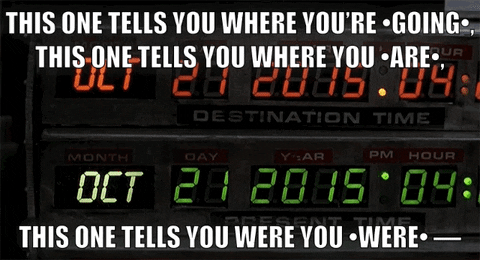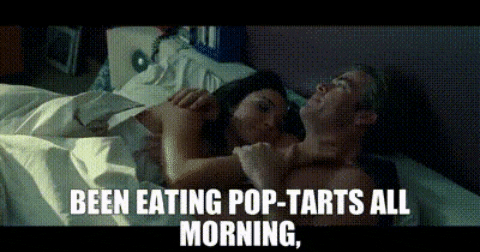'Winston, Winston!' his mother called after him. 'Come back! Give your sister back her chocolate!'
He stopped, but did not come back. His mother's anxious eyes were fixed on his face. Even now he was thinking about the thing, he did not know what it was that was on the point of happening. His sister, conscious of having been robbed of something, had set up a feeble wail. His mother drew her arm round the child and pressed its face against her breast. Something in the gesture told him that his sister was dying. He turned and fled down the stairs, with the chocolate growing sticky in his hand.
He never saw his mother again.
'Do you know,' he said, 'that until this moment I believed I had murdered my mother?'
'Why did you murder her?' said Julia, almost asleep.
'I didn't murder her. Not physically.'
In the dream he had remembered his last glimpse of his mother, and within a few moments of waking the cluster of small events surrounding it had all come back. It was a memory that he must have deliberately pushed out of his consciousness over many years. He was not certain of the date, but he could not have been less than ten years old, possibly twelve, when it had happened.
His father had disappeared some time earlier, how much earlier he could not remember. He remembered better the rackety, uneasy circumstances of the time: the periodical panics about air-raids and the sheltering in Tube stations, the piles of rubble everywhere, the unintelligible proclamations posted at street corners, the gangs of youths in shirts all the same colour, the enormous queues outside the bakeries, the intermittent machine-gun fire in the distance -- above all, the fact that there was never enough to eat. He remembered long afternoons spent with other boys in scrounging round dustbins and rubbish heaps, picking out the ribs of cabbage leaves, potato peelings, sometimes even scraps of stale breadcrust from which they carefully scraped away the cinders; and also in waiting for the passing of trucks which travelled over a certain route and were known to carry cattle feed, and which, when they jolted over the bad patches in the road, sometimes spilt a few fragments of oil-cake.
When his father disappeared, his mother did not show any surprise or any violent grief, but a sudden change came over her. She seemed to have become completely spiritless. It was evident even to Winston that she was waiting for something that she knew must happen. She did everything that was needed--cooked, washed, mended, made the bed, swept the floor, dusted the mantelpiece--always very slowly and with a curious lack of superfluous motion, like an artist's lay-figure moving of its own accord. Her large shapely body seemed to relapse naturally into stillness. For hours at a time she would sit almost immobile on the bed, nursing his young sister, a tiny, ailing, very silent child of two or three, with a face made simian by thinness. Very occasionally she would take Winston in her arms and press him against her for a long time without saying anything. He was aware, in spite of his youthfulness and selfishness, that this was somehow connected with the never-mentioned thing that was about to happen.
He remembered the room where they lived, a dark, close-smelling room that seemed half filled by a bed with a white counterpane. There was a gas ring in the fender, and a shelf where food was kept, and on the landing outside there was a brown earthenware sink, common to several rooms. He remembered his mother's statuesque body bending over the gas ring to stir at something in a saucepan. Above all he remembered his continuous hunger, and the fierce sordid battles at mealtimes. He would ask his mother naggingly, over and over again, why there was not more food, he would shout and storm at her (he even remembered the tones of his voice, which was beginning to break prematurely and sometimes boomed in a peculiar way), or he would attempt a snivelling note of pathos in his efforts to get more than his share. His mother was quite ready to give him more than his share. She took it for granted that he, 'The Boy', should have the biggest portion; but however much she gave him he invariably demanded more. At every meal she would beseech him not to be selfish and to remember that his little sister was sick and also needed food, but it was no use. He would cry out with rage when she stopped ladling, he would try to wrench the saucepan and spoon out of her hands, he would grab bits from his sister's plate. He knew that he was starving the other two, but he could not help it; he even felt that he had a right to do it. The clamorous hunger in his belly seemed to justify him. Between meals, if his mother did not stand guard, he was constantly pilfering at the wretched store of food on the shelf.
One day a chocolate ration was issued. There had been no such issue for weeks or months past. He remembered quite clearly that precious little morsel of chocolate. It was a two-ounce slab (they still talked about ounces in those days) between the three of them. It was obvious that it ought to be divided into three equal parts. Suddenly, as though he were listening to somebody else, Winston heard himself demanding in a loud booming voice that he should be given the whole piece. His mother told him not to be greedy. There was a long, nagging argument that went round and round, with shouts, whines, tears, remonstrances, bargainings. His tiny sister, clinging to her mother with both hands, exactly like a baby monkey, sat looking over her shoulder at him with large, mournful eyes. In the end his mother broke off three-quarters of the chocolate and gave it to Winston, giving the other quarter to his sister. The little girl took hold of it and looked at it dully, perhaps not knowing what it was. Winston stood watching her for a moment. Then with a sudden swift spring he had snatched the piece of chocolate out of his sister's hand and was fleeing for the door.
'Winston, Winston!' his mother called after him. 'Come back! Give your sister back her chocolate!'
He stopped, but did not come back. His mother's anxious eyes were fixed on his face. Even now he was thinking about the thing, he did not know what it was that was on the point of happening. His sister, conscious of having been robbed of something, had set up a feeble wail. His mother drew her arm round the child and pressed its face against her breast. Something in the gesture told him that his sister was dying. He turned and fled down the stairs, with the chocolate growing sticky in his hand.
He never saw his mother again. After he had devoured the chocolate he felt somewhat ashamed of himself and hung about in the streets for several hours, until hunger drove him home. When he came back his mother had disappeared. This was already becoming normal at that time. Nothing was gone from the room except his mother and his sister. They had not taken any clothes, not even his mother's overcoat. To this day he did not know with any certainty that his mother was dead. It was perfectly possible that she had merely been sent to a forced-labour camp. As for his sister, she might have been removed, like Winston himself, to one of the colonies for homeless children (Reclamation Centres, they were called) which had grown up as a result of the civil war, or she might have been sent to the labour camp along with his mother, or simply left somewhere or other to die.
The dream was still vivid in his mind, especially the enveloping protecting gesture of the arm in which its whole meaning seemed to be contained. His mind went back to another dream of two months ago. Exactly as his mother had sat on the dingy white-quilted bed, with the child clinging to her, so she had sat in the sunken ship, far underneath him, and drowning deeper every minute, but still looking up at him through the darkening water.
He told Julia the story of his mother's disappearance. Without opening her eyes she rolled over and settled herself into a more comfortable position.
'I expect you were a beastly little swine in those days,' she said indistinctly. 'All children are swine.'
'Yes. But the real point of the story----'



